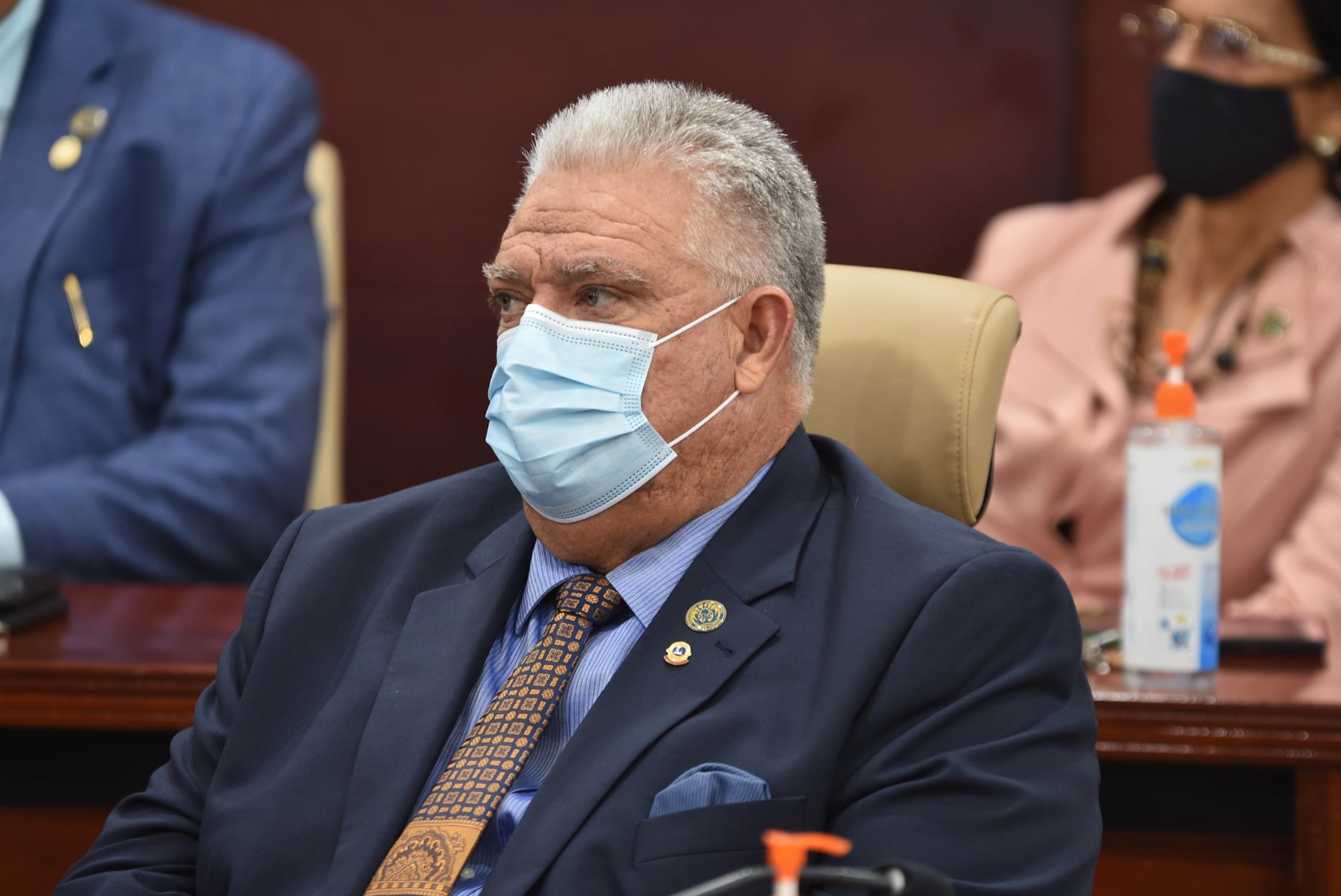
~ Writes in letter to Parliament that his suspension is unfair ~
PHILIPSBURG — Suspended parliamentarian Claudius Buncamper (United St. Maarten party, USp) wants Parliament to reconsider the text of the article in the Constitution of St. Maarten that forms the basis for his suspension. On Friday, August 19, 2022, Parliament will be reconvening a meeting at 10:00AM to vote on an advice to request an advice from the Council of Advice regarding article 50, paragraphs 2 and 3, of the Constitution. This part of the Constitution determines under which circumstances a parliamentarian will be suspended.
This all started when Buncamper wrote a letter to parliament-chair Grisha Heyliger-Marten on June 3. The relevant part of the Constitution is the second paragraph of article 50 that outlines under which circumstances a member of parliament will be suspended. That suspension becomes a reality if an MP is convicted for a crime. Buncamper argues that his sentence is not irrevocable, because he has appealed the ruling. While this is correct, it is also correct that the Court in First Instance sentenced Buncamper to 32 months and a 7-year ban on holding any position as a civil servant for accepting bribes and for manipulating the tender for the management of the dump.
For a suspension, the Constitution does not require that a conviction is irrevocable. Nevertheless, Buncamper states in his letter: “I find it very unfair that the people of this country must prematurely pay for this conviction by having their duly elected representative suspended.”
Buncamper’s letter to parliament runs six pages and is filled with references to international treaties and covenants The Netherlands has signed on to.
One example is his reference to article 14, paragraph 5, of the international convention on civil and political rights, the ICCPR: “Everyone convicted of a crime has the right to have his conviction and sentence reviewed by higher tribunal.”
Buncamper is currently exercising his right to appeal the verdict but he still “strongly holds” that the current interpretation of article 50, paragraph 2, violates international treaties and conventions” and that this article is discriminatory.
He advises the Parliament of St. Maarten (in his letter referred to as “the senate”) “to adopt a motion to review the interpretation of the international treaties that duly elected and appointed authorities be able to execute their jobs until there is an irrevocable verdict.”
The suspended MP claims that, based on the Constitution’s explanatory notes, article 50.2 “was never intended to suspend ‘senators’ (in fact: members of parliament) who were not irrevocably sentenced and who were not incarcerated.”
It is unclear to which part of the explanatory notes Buncamper refers, because we could not find any suggestion in this document to support his observation. The explanatory notes even offer politicians an additional layer of protection: “To prevent that decisions to prosecute politicians are taken lightly, prosecution requires the approval of the Common Court of Justice, at the request of the Attorney-General.”
Buncamper claims that the suspension-provision in the Constitution stems from “an awkward case in Curacao.” This is a reference to the conviction of FOL-leader Anthony Godett in 2004 for fraud, forgery and accepting bribes. He declared himself innocent at the trial and compared himself to Martin Luther King, Nelson Mandela, Jesus Christ and Hugo Chavez. In 2006, Godett finally went to prison but he kept his seats in the Curacao Island Council and in the Parliament of the Netherlands Antilles.
According to Buncamper, Godett asked every week to be transferred from the prison to the Island Council or the Parliament. Buncamper claims this as the reason St. Maarten inserted the suspension-article in its constitution. MP William Marlin, who was a senator at the time in the Parliament of the Netherlands Antilles, confirmed to StMaartenNews.com that indeed Godett submitted this request every week, but he was never allowed to leave the Bon Futuro prison.
The letter also refers to Buncamper’s acquittal in the what he calls the BUMO-case, locally better known as the Eco Green scandal. He writes that the case went for eight years through the courts and that everything started with the resignation of his wife Maria Buncamper-Molanus as Minister of Public Health on December 23, 2010.
This is not in his letter but the reason why the case went to court, is because in 2014 Maria Buncamper-Molanus was a candidate for the United People’s party. To make sure she could return to politics with a clean slate she went to court with the request that the Prosecutor’s Office close the books on the investigation against her. The court gave the Prosecutor’s Office three months to complete the file. It managed to meet this deadline and the Buncampers were eventually prosecuted.
MP Buncamper states that he mentions the case “to show the damage intermediate judgments can do to a person’s life and deny them the right to represent their constituents that duly elected them.”
Buncamper’s letter was on the Parliament’s agenda on Wednesday, July 13, but it did not get around to handling the matter after the Party for Progress asked to add confidence in VROMI-Minister Egbert Doran as an agenda-point, with the obvious intention to table a motion of no confidence against the minister. Two MPs left this meeting and left it without a quorum.
###
Related links:
Letter Buncamper submitted to Parliament dated June 3, 2022
PFP: Walkouts Becoming the Norm to Keep Accountability in the Dark








